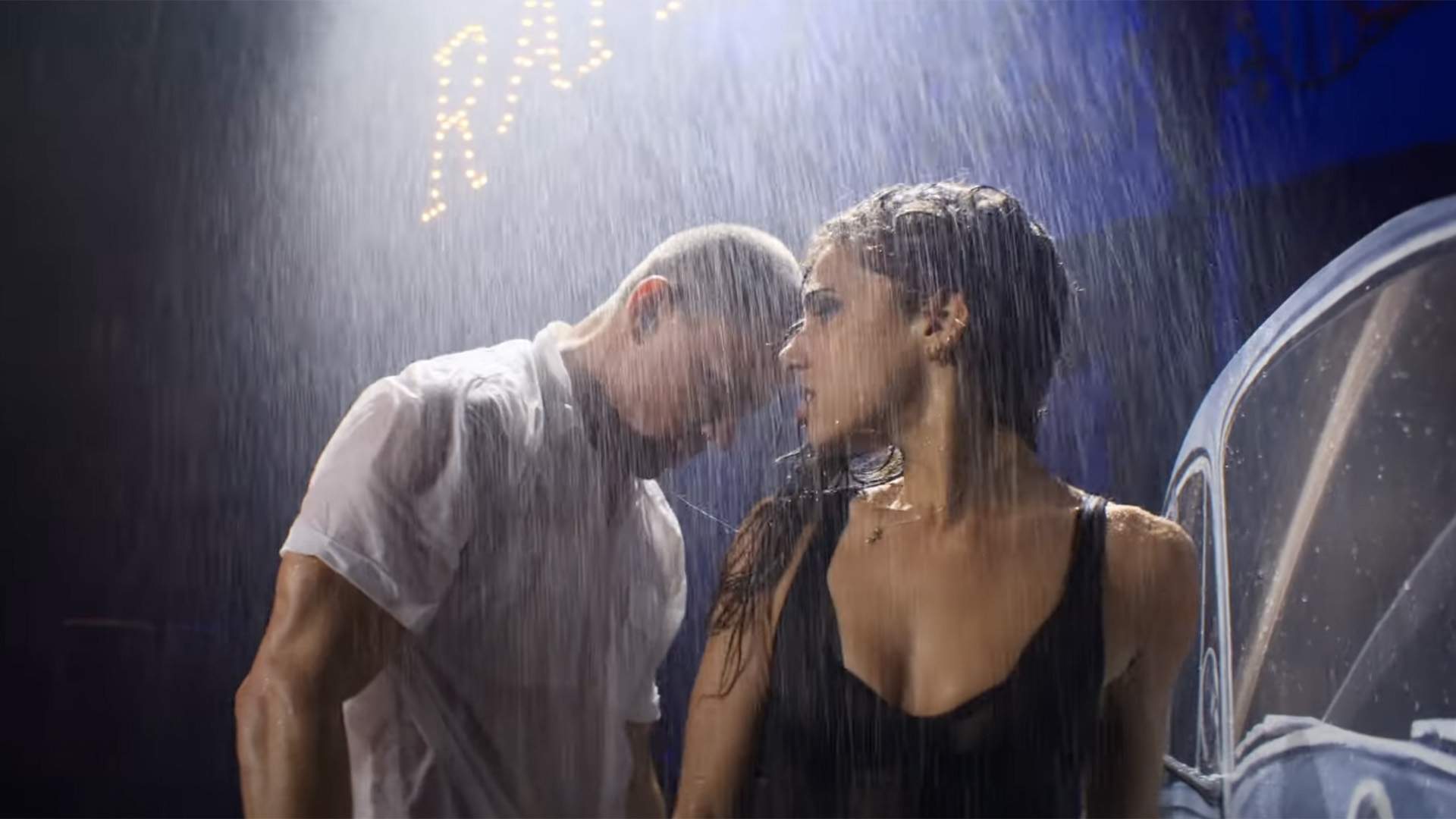
REVIEW: Magic Mike’s Last Dance (2023)
Steven Soderbergh (USA: 2023, 112 min.)

Magic Mike’s Last Dance wastes no time telling us what it’s all about. Despite the introductory voice-over prologue that confirms the post-pandemic setting that made Mike Lane’s Custom Furniture one of the all-too-familiar COVID-19 casualties, our titular character still appears out of the male entertainment game. After a clever and revelatory callback where a now mature and married former client recalls the magic of her experience with Mike the ‘cop,’ one thing leads to the next, and our protagonist, reprised by the chiseled and charismatic Channing Tatum finds himself inside the home of wealthy hostess Maxandra Mendoza (Salma Hayek Pinault).
Awkward propositions, inflated price tags, and lock-tight promises against sex ensue, but before you know it, the retired stripper is bringing the heat yet again with a sensual set piece that ends in the breaking of said promise, the rejection of an agreed-upon $6,000 fee (Mike is an ethical stripper after all) and an invite to London for a secret project that Max claims is the perfect fit for Mike’s artistic vision put on full display in this ‘last dance.’ We know enough about director Steven Soderbergh, screenwriter Reid Carolin, and Mike Lane himself to know he will inevitably find the stage again.
With enough male thrusting in this first 10 minutes to send a convent into a full-on existential crisis, the strip tease showmanship that Soderbergh brings to the table in this trilogy is back in full force for Hayek and the audience alike. After arriving in London, the private plot of Mike’s newest romantic interest is revealed where he is to be the next director of the Rattigan theater (legally owned by Max) and bring his brand of soft-core suave eroticism to the West End. The story unfurls through the stakes of two parallel dramas—the labored backstage romance of Max and Mike strained under the weight of a powerful and wealthy husband who could ‘strip’ Max from her artistic pursuits, from her relationship with her daughter, and from her seemingly bottomless joint bank account with the snap of a legal finger and the incorrigible on-stage production that the pair are designing under the nose of interfering city bureaucracy.
Unfortunately for the screenplay, neither side of the story as lovers or theater visionaries are fully realized, nor do they successfully coalesce in the play’s climatic dance which plays to the tune of both the most dynamically shot and choreographed sequence in the Magic Mike canon, but also the most emotionally obscure requiring a far greater investment in the backstage chemistry to sell the on-stage artistic courtship. Amidst the trials and tribulations of Max and Mike’s cinematically unconsummated stay in London is a clumsy set of supporting characters that lack any depth beyond the surface-level manifestations of Max’s revenge machine against her husband. Even her daughter Zadie (Jemelia George) is used as little more than an anemic plot device to mediate between the power struggle of her parents turned love triangle by the sudden appearance of a Florida stripper. As open as the series claims to be about deconstructing masculinity and sexuality, the persistent censoring of Zadie’s perspective by Max’s butler Robert (played by Christopher Villiers with an aggravating degree of unpleasantness) during the final show is uncomfortably contradictory. But as incongruous as her character is to the overarching narrative, her utilization is only topped negatively by the persistent refusal of her unrelenting voice-overs that are something straight out of a Louisa May Alcott novel. Like most the screenwriting decisions, it simply doesn’t work.
In this tedious third installment of Steven Soderbergh’s sidetracked dive back into the mind and body of Mike Lane, a stripper turned custom furniture maker turned charity event bartender, character development and plot clearly take a spot even further backstage than its predecessors. Although narrative depth and thematic weight have never been the fundamental priority of the film’s 2012 and 2015 predecessors, even the most committed of audience members to ‘not watching for the plot’ as one would say, would surely be disappointed by the tired romance at the core of this story. Even the admirable characteristics of Hayek and Tatum as performers that typically add to their on-screen charm appear to work against their characters. Despite their efforts, Hayek as the manic socialite in a ‘phase’ that doesn’t feel long-term and Tatum as the acquiescing entertainer there for the opportunity of financial support as much as for the people, their flat dynamic is overwhelmingly unconvincing both romantically and economically as the film refuses to drop its ill-fitting class commentary along the way.
Simultaneous to the romantic disillusionment, there is little doubt that the choreography throughout Magic Mike’s Last Dance (or his last dances) alongside a small army of supporting choreographers is the most impressive to date. What holds that feat back, however, is the lack of emotional investment embedded in the explosively gyrating movements of interchangeable 6-pack abs that leaves you with a distant sense of coldness. As an anecdote for the two-dimensional screenwriting strategy as a whole, we do not even know the names of the crew that Mike employs for his R-rated stage adaptation. Not even Kylie Shea (another unnamed, uncharacterized, unspoken addition) and her climactic rain-soaked rhumba reenacting the personal dynamic of Mike and Max to far greater effect than the actual events can resuscitate the magic in this half-baked installment of the stripper-led saga.
No Comments